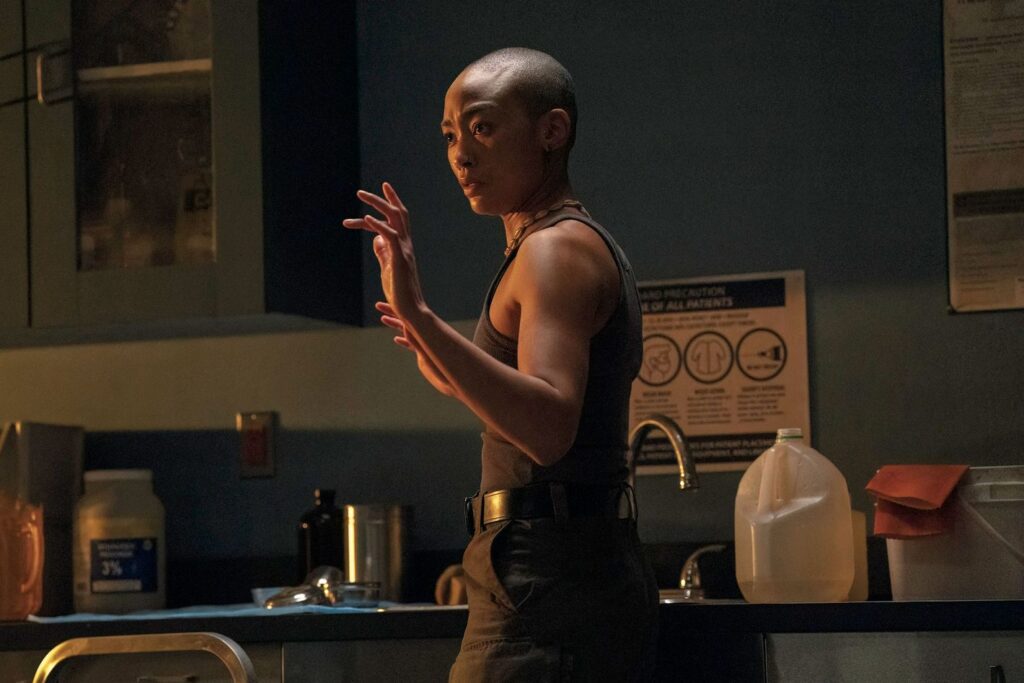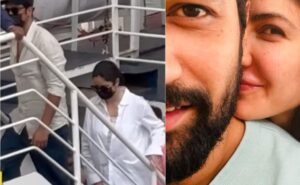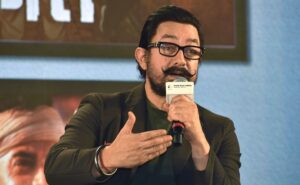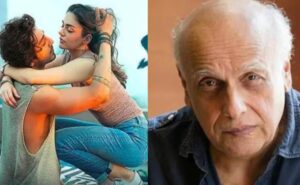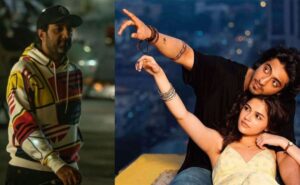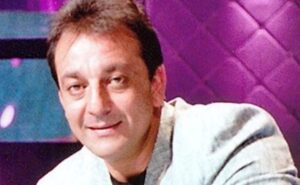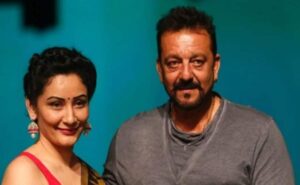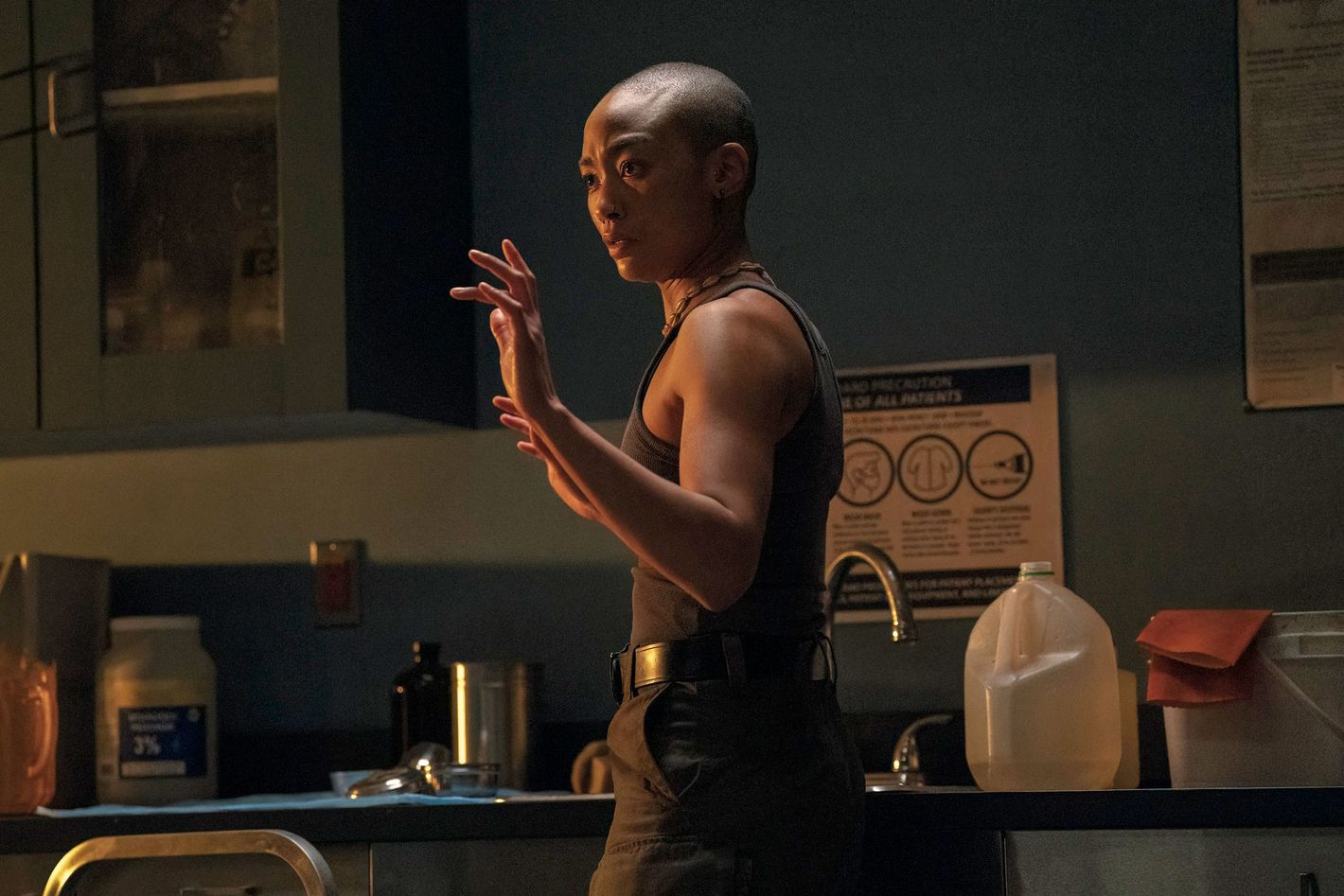
Ever since Ellie (Bella Ramsey) witnessed the brutal death of her adoptive father, Joel (Pedro Pascal), early this season on The Last of Us, she’s had one goal: kill his murderer, Abby (Kaitlyn Dever). Of course, Joel’s killing is itself the end result of a yearslong revenge mission set off when he slaughtered Abby’s father, a Firefly doctor who could have developed a cure to the Cordyceps infection, albeit at the cost of Ellie’s life. The series consciously draws parallels between the two 19-year-olds, as well as the communities around them, to explore the corrosive cycle of violence.
In “Feel Her Love,” Ellie’s obsessive rage leads her to torture Washington Liberation Front member Nora, played by Tati Gabrielle, beating her with a lead pipe to extract Abby’s location. Even in a show as violent and brutal as this one, it’s a dark scene, a sign of just how far Ellie could go in the pursuit of vengeance — especially with the revelation that she’s now fully aware Joel was lying about the Fireflies failing to develop a cure. Never mind that toxic spores have already doomed Nora to die; based on her dialogue with Ellie, she’s haunted by her own complicity even as she mourns all she’s lost since Abby’s father’s death. “You could say that apology she gives Ellie is for the sake of distraction, but I wanted it to feel genuine,” Gabrielle says, “because I think it is.”
How would you characterize Nora’s relationship with Abby, and how she feels about Abby’s revenge crusade?
I think Nora worked very closely with Abby’s dad, who took her under his wing to become a doctor and learn the importance of what it meant to create this cure. He was a mentor. That ultimately made Abby and Nora very close. She felt with her and for her in his death. In exacting this revenge plot, what starts out as a naïve sense of loyalty and wanting to be there for her friend turns into, “This is justice.” Nora convinces herself, This is what is necessary to move forward and feel like all the work Abby’s dad did wasn’t in vain. Nora chose this very interesting line, which I tried to portray in the second episode: “There’s a difference between the thought of justice and actually doing it.” The reality sets in. “Wait, we are actually forcefully taking this man’s life.” She can’t afford to feel bad about that, and she has to stand with her friend. Trauma will make one spiral out, and for the sake of survival, we don’t have that option.
What was it like filming Joel’s death scene from your perspective? Nora is pinning Ellie down for much of the scene as she screams “Joel, get up” over and over.
It was just wanting to be as present as possible and still carrying Nora’s burden and emotion. Technically speaking, I wanted to make sure I wasn’t putting too much pressure on Bella so they could do what they had to do to fill that scene out. You release all ego in that way. It’s about serving the story. They caught more of my reactions than I realized. I let those moments inform me for episode five. Whether the audience is able to see it or not, Nora is still experiencing this moment, being on top of this girl who’s essentially screaming for her dad, the same thing Abby had gone through five years before. And what that does to Nora later on, when she does meet Ellie again … you could say that apology she gives Ellie is for the sake of distraction, but I wanted it to feel genuine, because I think it is.
Ellie chasing Nora in the last ten minutes of episode five is its own mini action set piece, and before she goes out, Nora gets some badass moments, like jumping into an elevator shaft.
I like doing action. I was running too fast down the hallway and they had to slow me down. [Laughs.] We did so many takes of that. They’re like, “Tati, you have to run slower.” I was like, “She’s running for her life! I can’t run any slower!” That was funny to find: how to be badass but run at movie speed.
My favorite thing about the elevator shaft was the take they used — it’s a glimpse from the front as she’s falling — I did it wrong. I had set my footing wrong in the elevator shaft when it went to drop. It was a rig they had built with a wall they could take out, but they built the elevator shaft in the studio stage. It’s supposed to shake, I take another step, and it drops. I didn’t fully land my foot when the drop happened, so I actually swung out of the elevator shaft a bit. I landed fine and was like, “That was awesome,” because the child in me was like, I just went on a roller coaster. That was the last take we did. I was like, “We’re doing it again, right? I put my foot wrong.” Stephen [Williams], our director, comes into the elevator shaft like, “Take her off the line.” I was like, “No, Stephen, I got it!” He had such dad energy. He takes my hand, like, “No. My heart can’t take it. We’re done.” That was some fun between the heaviness of the two scenes.
How did you and Bella rehearse the final torture scene physically? Did you shoot in sequence?
We shot the action bits after the two main scenes. With that final scene, Bella and I did our rehearsals and stuff, but we had two very different things we had to carry. We didn’t want to influence each other in any particular way and just give the most honest performance we could. I love working with Bella because they’re so present and so giving in the acting. With the torture bit, they were so precious. After every take, “You okay? Did I hit you too hard?” I was like, “No, no, no, it’s fine! Just go for it! Whale on it!” The joke I kept making was, “I pinned you down. This is the revenge. Give it to me.”
Throughout this very charged emotional scene, you also have to portray your increasing physical deterioration from the spores taking effect.
That was the most difficult part. I love Craig for this: He thinks about every single detail of everything, even with the Cordyceps and how one becomes infected. He’s thought about the science of it. I can go to him and be like, “It affects the brain, so where does it go?” It goes to the nervous system, so what does that look like? Is she twitching? Is it just affecting her lungs at this point? It was difficult to feel tension in the body and try to twitch through also talking and being hoarse. It was one of the hardest challenges I’ve had as an actor, physical and emotional acting at the same time. I thought about it so much after.
I wanted to quickly touch on your role in You, which just ended. I thought it was nice that you got to come back for one episode of the last season to wrap up Marienne’s story and meet with the other women who survived Joe Goldberg. How did it feel to close out the show and take Joe to task?
At the end of season four, you don’t get to see her have her final peace and justice. She gets away, but there needed to be some sense of closure. To be able to come back and give her that meant a lot to me. I also like that she got to play a part in exacting justice upon Joe but had no hand in what happened to him. I don’t think she would’ve been able to wrestle with that in the long run. Marienne is very much a character, different than Nora, of “an eye for an eye makes the whole world blind.” She’s able to get out what she needed to get out. Kate says she’s going to do what she’s going to do, and Marienne is like, “You know what? I don’t need a hand in that.” To be able to stop the cycle was incredibly important for her.
You said that you’re a scaredy-cat, but your shows feature a lot of murder. I recall you did some torturing on Chilling Adventures of Sabrina.
It’s funny, people always say that to me: “What do you mean you’re a scaredy-cat?” I didn’t choose this. It just kind of happened. The thing I’ve always glommed onto with each of these characters was, What is the human aspect, beyond the world they’re playing in? Can I connect to that piece? I want to make sure they’re not frivolous.
More ‘The Last of Us’
“I thought about it so much after.”

